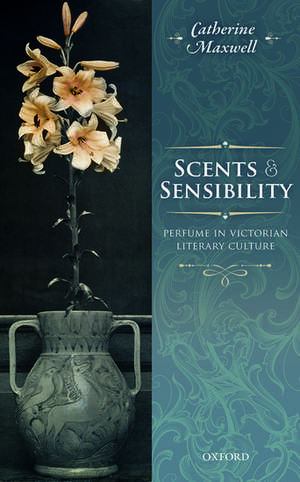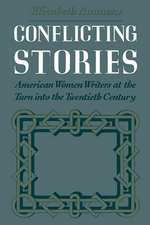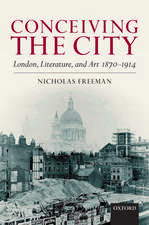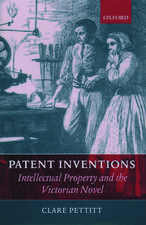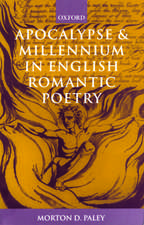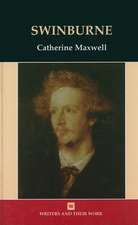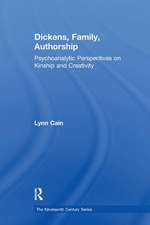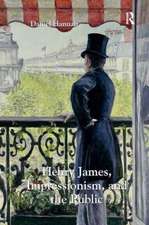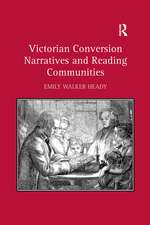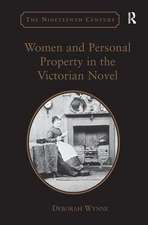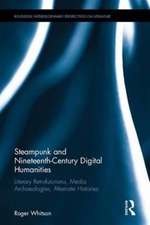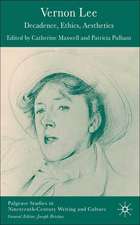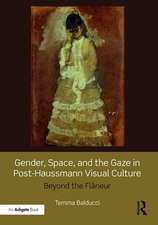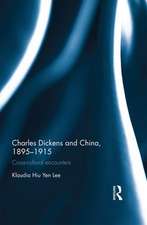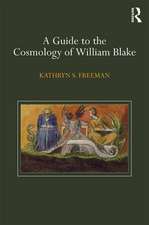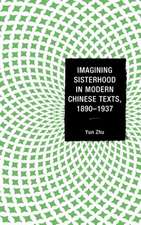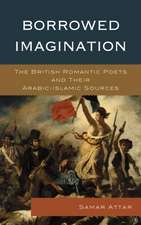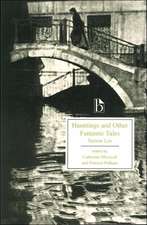Scents and Sensibility: Perfume in Victorian Literary Culture
Autor Catherine Maxwellen Limba Engleză Hardback – 26 oct 2017
Preț: 334.28 lei
Nou
Puncte Express: 501
Preț estimativ în valută:
63.97€ • 66.54$ • 52.81£
63.97€ • 66.54$ • 52.81£
Carte tipărită la comandă
Livrare economică 01-07 aprilie
Preluare comenzi: 021 569.72.76
Specificații
ISBN-13: 9780198701750
ISBN-10: 0198701756
Pagini: 388
Ilustrații: 13 in-text halftones and an 8 page plate section
Dimensiuni: 172 x 240 x 23 mm
Greutate: 0.79 kg
Editura: OUP OXFORD
Colecția OUP Oxford
Locul publicării:Oxford, United Kingdom
ISBN-10: 0198701756
Pagini: 388
Ilustrații: 13 in-text halftones and an 8 page plate section
Dimensiuni: 172 x 240 x 23 mm
Greutate: 0.79 kg
Editura: OUP OXFORD
Colecția OUP Oxford
Locul publicării:Oxford, United Kingdom
Recenzii
I would not do justice to Scent and Sensibility: Perfume in Victorian Literary Cultureif I do not state as clearly as possible: the book is a highly anticipated and morethan welcome addition to the study of Victorian literature and cultural history.Not only is it a compelling read but an indispensable source for lay-readersand scholars alike, who are interested in the period. As it most certainly hasproven that the study of perfumes delineates a fruitful focus toreconceptualize both canonized and non-canonized literatures, Scents andSensibility initiates a long overdue dialogue that is absolutely worth carrying on.
Her book infuses the atmosphere of the Victorian agewith new detail and depth. It is a prime example of what sensory analysis in literary resesarch can achieve when executed with a creative approach, sharp focus, and exemplary research, as is the case in the book at hand.
Despite the prominence of the olfactory sense in late nineteenth-century writing, no full-length study has examined perfume in the literature of the period until now. Catherine Maxwell's contribution to this nascent field is a considerable accomplishment.
Catherine Maxwell's study brilliantly opens up the vast territory of its title. Maxwell's method combines in-depth literary-historical knowledge and meticulous philological research with sophisticated textual interpretations. Maxwell is equally at home in the material world of scent as she is in its literary, symbolical, and imaginary spheres. Her book infuses the atmosphere of the Victorian age - a period that has seen no shortage of research - with new detail and depth. It is a prime example of what sensory analysis in literary research can achieve when executed with a creative approach, sharp focus, and exemplary research
Maxwell is able to move between careful and insightful literary analysis on an impressively wide range of literary texts and fascinating in-depth discussions of social history with masterful ease.
[An] exemplary study... The research is not only impeccable but extensive... Maxwell's command of her subject and the literary texts is truly impressive... It is thanks to Catherine Maxwell's lucid and perceptive study that this crucial element of aestheticism and decadence can be fully appreciated.
Catherine Maxwell's new book marks not so much an advance as a quantum leap in our understanding of Victorian scentscapes. It is one of those rare books that is both a ground-breaking work of cultural history and a rigorous study of literary style. The meticulous care in research, the encyclopaedic knowledge of Victorian literary culture and the precision of her prose make Maxwell's book a rare beast in Victorian Studies ... This summary of Maxwell's brilliant study has only been able to draw broad brushstrokes and in doing so cannot truly do justice to the importance of her work, for it is in the impeccably thorough research, the sensitive close readings and the breadth of knowledge - whether that be of literary history or perfume production - that its quality lies.
No previous critic has unveiled the mysterious world of Victorian perfume within the context of nineteenth-century poetry and poetics ... The richness of Maxwell's discovery is startling and convincing ... Catherine Maxwell has opened a new organ, the olfactory organ. In her fresh and fragrant manner, and through her perceptive and authoritative scholarship, she has allowed us to sense the work of Pater and other members of the aesthetic movement in a new way.
Maxwell's work is of the highest level of scholarship, invaluable to anyone interested in Victorian conceptions of scent and the sensory experience. It is also of particular use to those interested in the fin de siècle Aesthetic movement ... a significant addition to Victorian and Decadence studies.
A timely and spectacularly original contribution to the fields of Victorian culture, aestheticism and decadence, sensory studies, and studies of influence. It will be indispensable to students and scholars of Victorian, Fin-de-siècle and Modernist studies, as well as enthusiasts of fashion and perfume. If Huysmans's À rebours (1884) is a perfumed novel, Scents and Sensibility is the first perfumed monograph, a study that harbours a number of surprise ingredients that make it irresistible.
This is genuinely interdisciplinary scholarship ... What makes this book so distinctive is less its impressive literary analyses than its intriguing engagement with perfume itself. Scents and Sensibility is written with clarity and verve, its finely wrought analyses mercifully free of jargon. It is shrewd, drily humorous, and extremely well researched. Augmented with attractive colour plates (though lacking scratch and sniff panels) and produced with OUP's usual scrupulousness, it is at once informative and entertaining.
Maxwell's study vibrantly illuminates the important significance of the olfactory sense in Victorian literature and culture. Combining an impressive grasp of the mechanics of nineteenth-century perfume production and marketing with a close attention to telling aspects of textual and biographical detail, Maxwell's study ranges confidently from its central focus on fin-de-siècle literature ... to the 'insistent sweet perfume' of English decadent literature.
Catherine Maxwell's third monograph is not only a welcome addition to the field, but a genuinely original contribution to knowledge.
Impressively researched and admirably written. Whilst its studies of particular scents are fascinating ... Maxwell provides an encyclopaedic resource on an out of the way aspect of these writers' biographies and works which has hitherto been waiting under our very noses.
Catherine Maxwell's richly historicized Scents and Sensibility ... reads Swinburne in the context of the senses. While most studies of Victorian sensation focus on sight, hearing, or touch, Maxwell draws attention to a theme that has gone understudied... Such cogent works as this show that this is an exciting time to be a Swinburnian
vivid, wide-ranging book
fascinating Gathering the fragrant thoughts of luluminaries from Oscar Wilde to H.G. Wells, it's a sumptuous plunge that presents perfume as a character in its owns own right.
It is ... the perfect book for anyone who loves scent and Victorian literature ... if I didn't already have a copy it would be top of my Christmas wish list.
Drawing on perfume manuals, etiquette guides, hygiene manuals and works on floriculture as well as letters and memoirs, Maxwell describes a late-Victorian culture in which scent played an important role in the definition and development of key literary tropes: style, atmosphere, influence, sensuality, refinement, and memory.
Her book infuses the atmosphere of the Victorian agewith new detail and depth. It is a prime example of what sensory analysis in literary resesarch can achieve when executed with a creative approach, sharp focus, and exemplary research, as is the case in the book at hand.
Despite the prominence of the olfactory sense in late nineteenth-century writing, no full-length study has examined perfume in the literature of the period until now. Catherine Maxwell's contribution to this nascent field is a considerable accomplishment.
Catherine Maxwell's study brilliantly opens up the vast territory of its title. Maxwell's method combines in-depth literary-historical knowledge and meticulous philological research with sophisticated textual interpretations. Maxwell is equally at home in the material world of scent as she is in its literary, symbolical, and imaginary spheres. Her book infuses the atmosphere of the Victorian age - a period that has seen no shortage of research - with new detail and depth. It is a prime example of what sensory analysis in literary research can achieve when executed with a creative approach, sharp focus, and exemplary research
Maxwell is able to move between careful and insightful literary analysis on an impressively wide range of literary texts and fascinating in-depth discussions of social history with masterful ease.
[An] exemplary study... The research is not only impeccable but extensive... Maxwell's command of her subject and the literary texts is truly impressive... It is thanks to Catherine Maxwell's lucid and perceptive study that this crucial element of aestheticism and decadence can be fully appreciated.
Catherine Maxwell's new book marks not so much an advance as a quantum leap in our understanding of Victorian scentscapes. It is one of those rare books that is both a ground-breaking work of cultural history and a rigorous study of literary style. The meticulous care in research, the encyclopaedic knowledge of Victorian literary culture and the precision of her prose make Maxwell's book a rare beast in Victorian Studies ... This summary of Maxwell's brilliant study has only been able to draw broad brushstrokes and in doing so cannot truly do justice to the importance of her work, for it is in the impeccably thorough research, the sensitive close readings and the breadth of knowledge - whether that be of literary history or perfume production - that its quality lies.
No previous critic has unveiled the mysterious world of Victorian perfume within the context of nineteenth-century poetry and poetics ... The richness of Maxwell's discovery is startling and convincing ... Catherine Maxwell has opened a new organ, the olfactory organ. In her fresh and fragrant manner, and through her perceptive and authoritative scholarship, she has allowed us to sense the work of Pater and other members of the aesthetic movement in a new way.
Maxwell's work is of the highest level of scholarship, invaluable to anyone interested in Victorian conceptions of scent and the sensory experience. It is also of particular use to those interested in the fin de siècle Aesthetic movement ... a significant addition to Victorian and Decadence studies.
A timely and spectacularly original contribution to the fields of Victorian culture, aestheticism and decadence, sensory studies, and studies of influence. It will be indispensable to students and scholars of Victorian, Fin-de-siècle and Modernist studies, as well as enthusiasts of fashion and perfume. If Huysmans's À rebours (1884) is a perfumed novel, Scents and Sensibility is the first perfumed monograph, a study that harbours a number of surprise ingredients that make it irresistible.
This is genuinely interdisciplinary scholarship ... What makes this book so distinctive is less its impressive literary analyses than its intriguing engagement with perfume itself. Scents and Sensibility is written with clarity and verve, its finely wrought analyses mercifully free of jargon. It is shrewd, drily humorous, and extremely well researched. Augmented with attractive colour plates (though lacking scratch and sniff panels) and produced with OUP's usual scrupulousness, it is at once informative and entertaining.
Maxwell's study vibrantly illuminates the important significance of the olfactory sense in Victorian literature and culture. Combining an impressive grasp of the mechanics of nineteenth-century perfume production and marketing with a close attention to telling aspects of textual and biographical detail, Maxwell's study ranges confidently from its central focus on fin-de-siècle literature ... to the 'insistent sweet perfume' of English decadent literature.
Catherine Maxwell's third monograph is not only a welcome addition to the field, but a genuinely original contribution to knowledge.
Impressively researched and admirably written. Whilst its studies of particular scents are fascinating ... Maxwell provides an encyclopaedic resource on an out of the way aspect of these writers' biographies and works which has hitherto been waiting under our very noses.
Catherine Maxwell's richly historicized Scents and Sensibility ... reads Swinburne in the context of the senses. While most studies of Victorian sensation focus on sight, hearing, or touch, Maxwell draws attention to a theme that has gone understudied... Such cogent works as this show that this is an exciting time to be a Swinburnian
vivid, wide-ranging book
fascinating Gathering the fragrant thoughts of luluminaries from Oscar Wilde to H.G. Wells, it's a sumptuous plunge that presents perfume as a character in its owns own right.
It is ... the perfect book for anyone who loves scent and Victorian literature ... if I didn't already have a copy it would be top of my Christmas wish list.
Drawing on perfume manuals, etiquette guides, hygiene manuals and works on floriculture as well as letters and memoirs, Maxwell describes a late-Victorian culture in which scent played an important role in the definition and development of key literary tropes: style, atmosphere, influence, sensuality, refinement, and memory.
Notă biografică
Catherine Maxwell read English literature for her BA and D.Phil. at St Hugh's College, Oxford where she was subsequently a British Academy Postdoctoral Fellow from 1990-1993. She then joined the School of English and Drama at Queen Mary, University of London, becoming Professor of Victorian Literature in 2009. She is the author of The Female Sublime from Milton to Swinburne: Bearing Blindness (Manchester University Press, 2001), Swinburne (Northcote House, 2006), and Second Sight: The Visionary Imagination in Late Victorian Literature (Manchester University Press, 2008), as well as numerous articles on Victorian poetry and prose.
